Closing Emergency Assistance Gaps for Victims of Displacement
Supporting the healing and recovery of individuals and communities victimized by conflict
Colombia
2008-2025
USAID, Bureau for Humanitarian Assistance
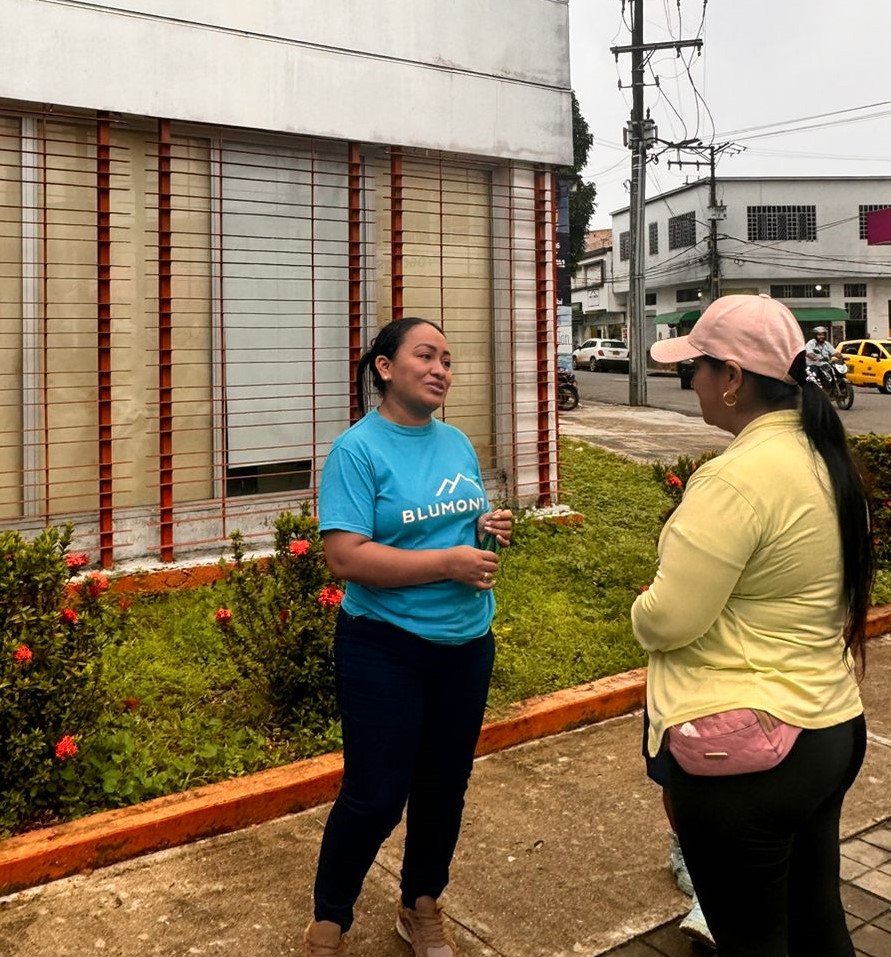
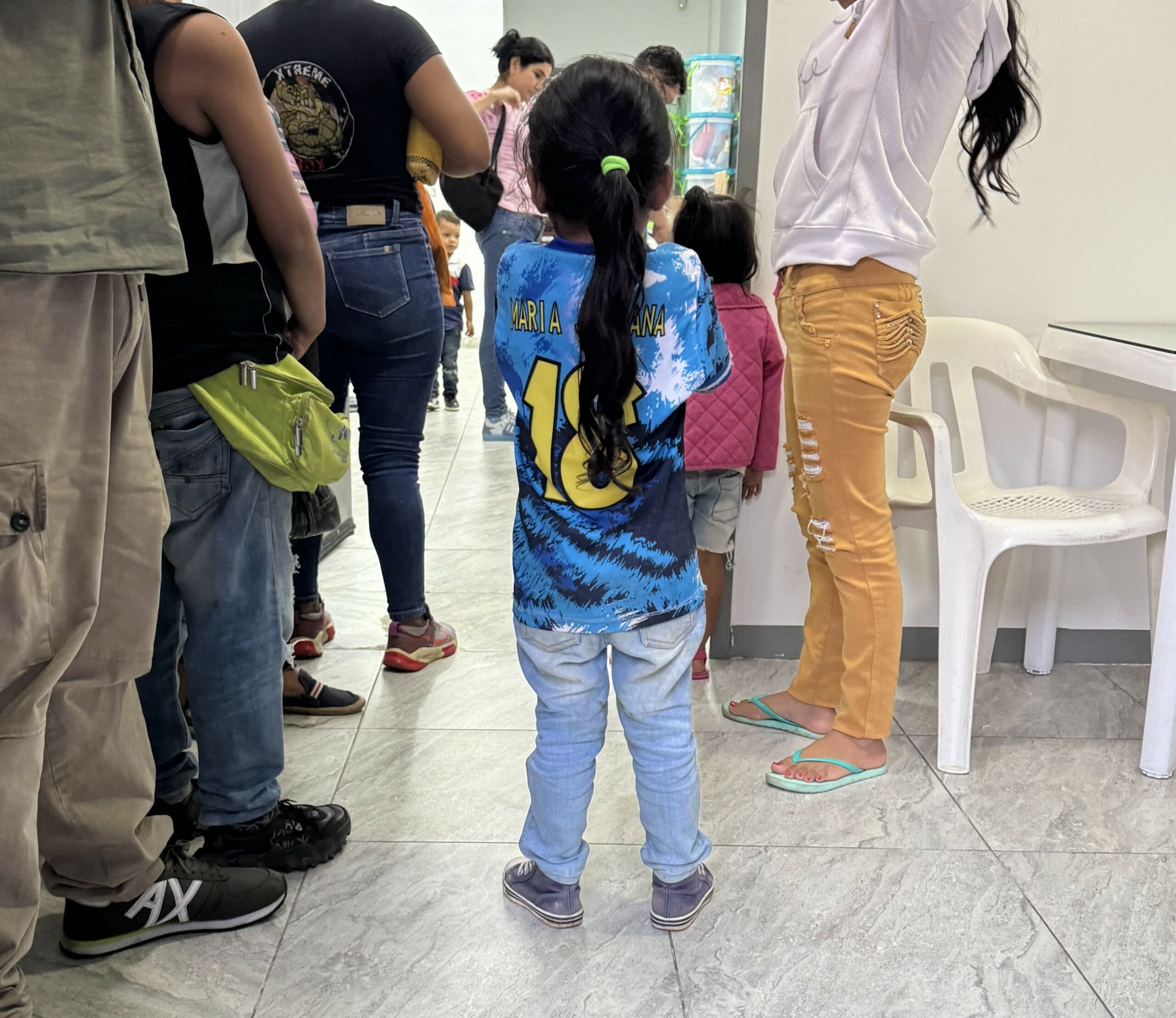
Since 2008, our work for the Closing Gaps program–previously funded by the U.S. State Department, Bureau of Population, Refugees, and Migration until October 2021–has strengthened government and community capacity to assist victims of displacement and in Colombia.
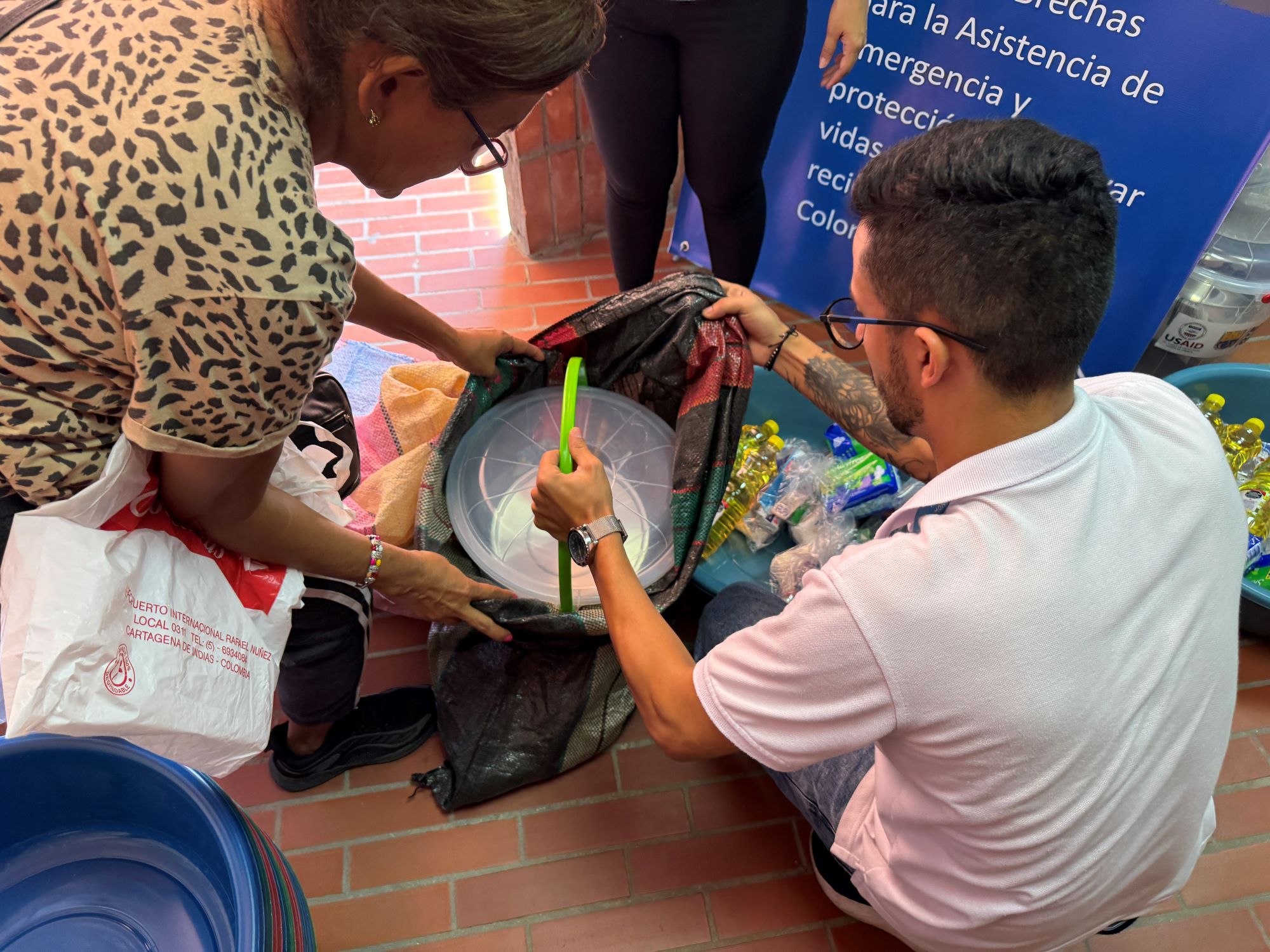
Responding to Internal Displacements
The Closing Gaps program provides life-saving emergency assistance and protection to recently displaced people. We operate in mid-sized cities in Colombia that are receiving large influxes of migrants but do not have the same resources as major cities. As levels of displacement remain high across the country, we respond to newly arrived displaced people within 72 hours of arrival to bridge service gaps.
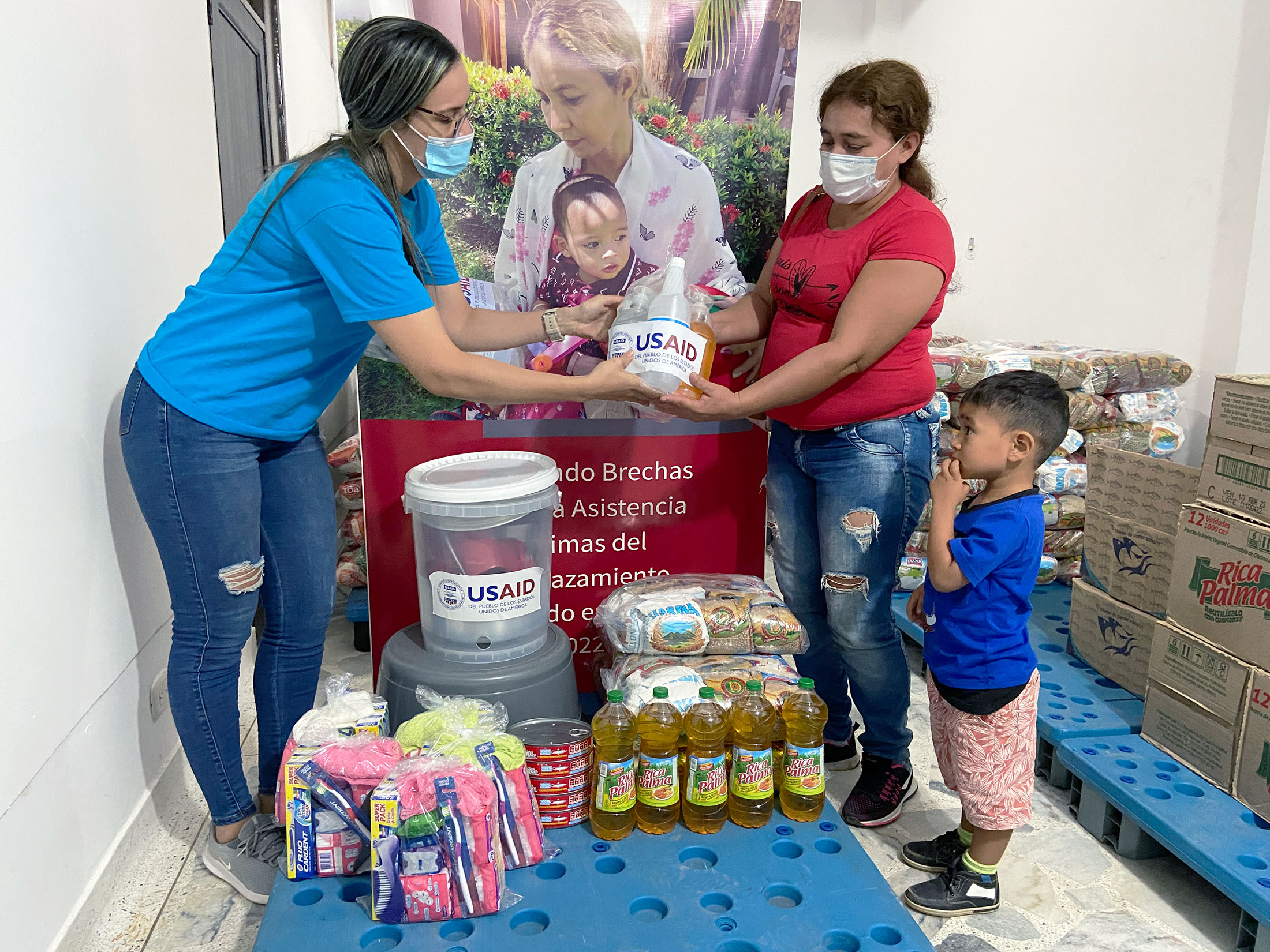
Providing Integrated Services
Colombia’s Public Ministry refers families who submit declarations–a request for assistance following their displacement–to our team for further action. We provide food and supplies to meet families’ immediate needs while government entities review their applications for broader support. Our team psychologists offer emergency psychosocial evaluations, identifying those with needs for additional care. We also connect newly displaced families to services, including helping children enroll at local schools and connecting people to health care systems. In 2023, we supported approximately 13,000 people through nutrition, medical, and mental health assistance activities.
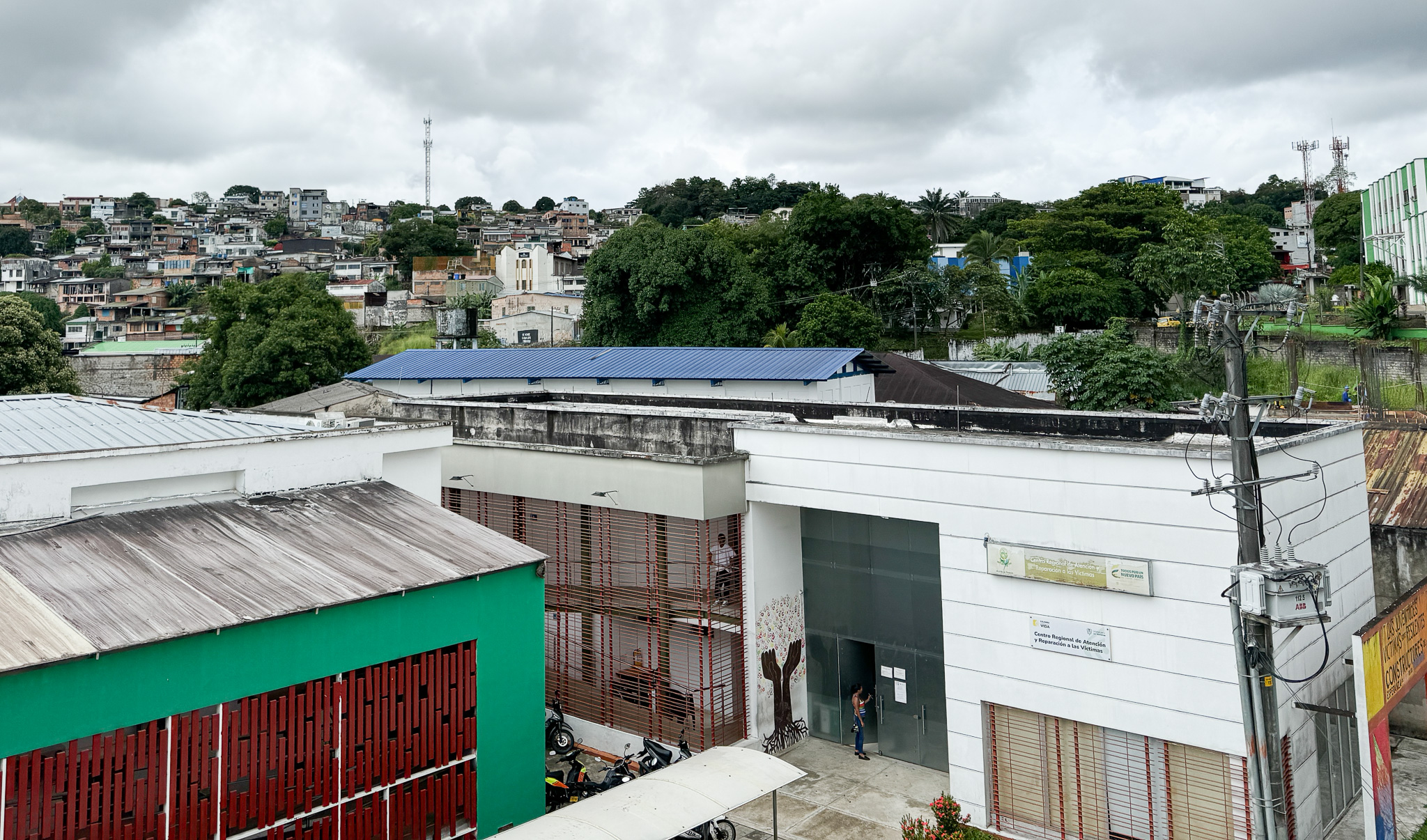
Strengthening the Capacity of Local Governance
We coordinate closely with the Government of Colombia’s Victims’ Unit, which leads efforts to implement the national peace plan, on distributing immediate humanitarian assistance to newly displaced families. Our teams are embedded directly at Victims’ Unit Centers to receive families, provide immediate assistance, assess needs, and register them for local services. Working in tandem with the Victims’ Unit allows government workers to build critical management and operations skills and scale our work.
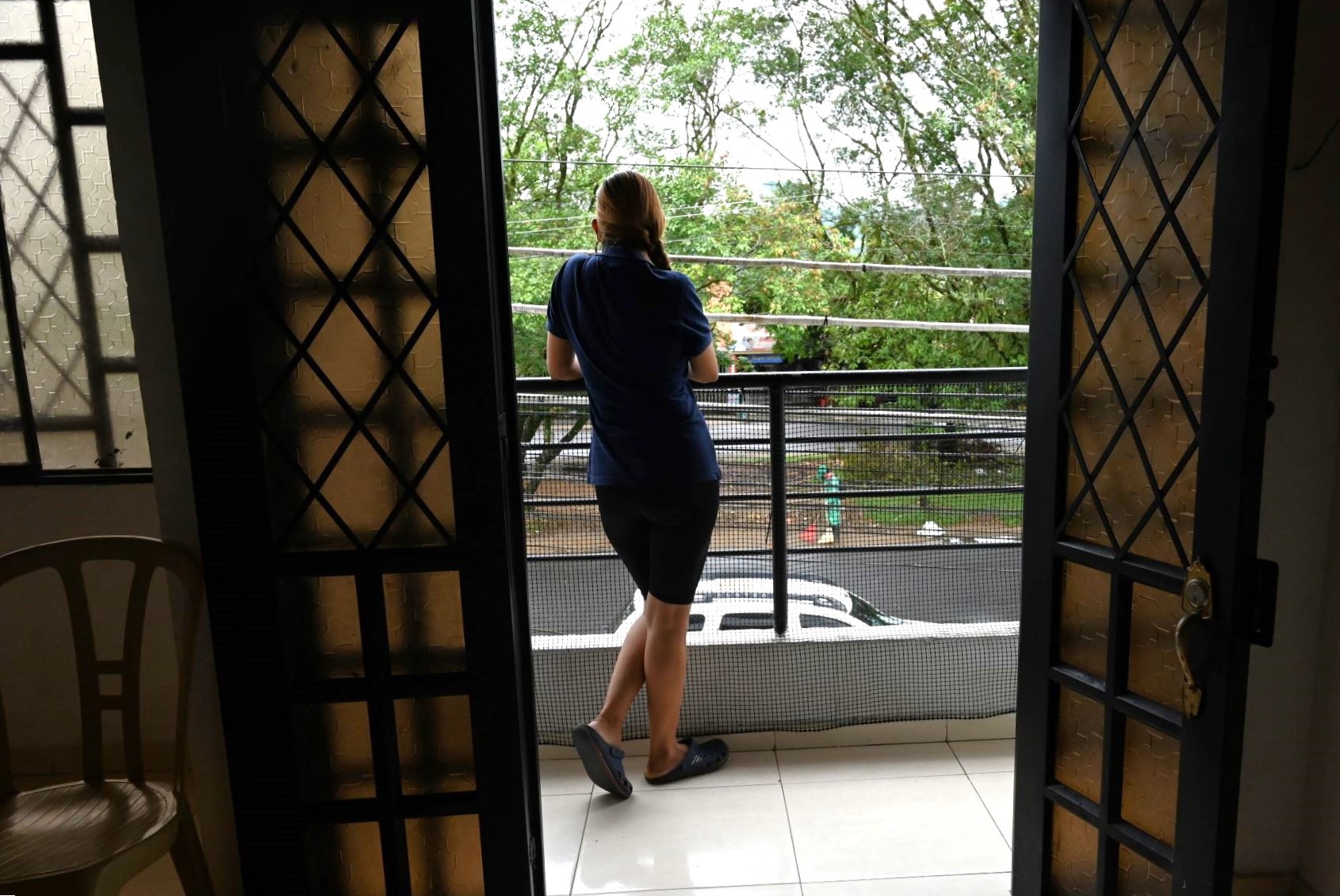
Securing Safe Housing through Rental Support
We help displaced families secure housing by offering six-month rental assistance, with a particular focus on households headed by women at-risk or victims of gender-based violence. Housing must meet criteria including a rental contract, no overcrowding, proper utilities, and more. We work with local landlords to ensure there is no disruption to the housing market. In follow-up surveys, we found that more than 70% of families could pay rent on their own after support ended.
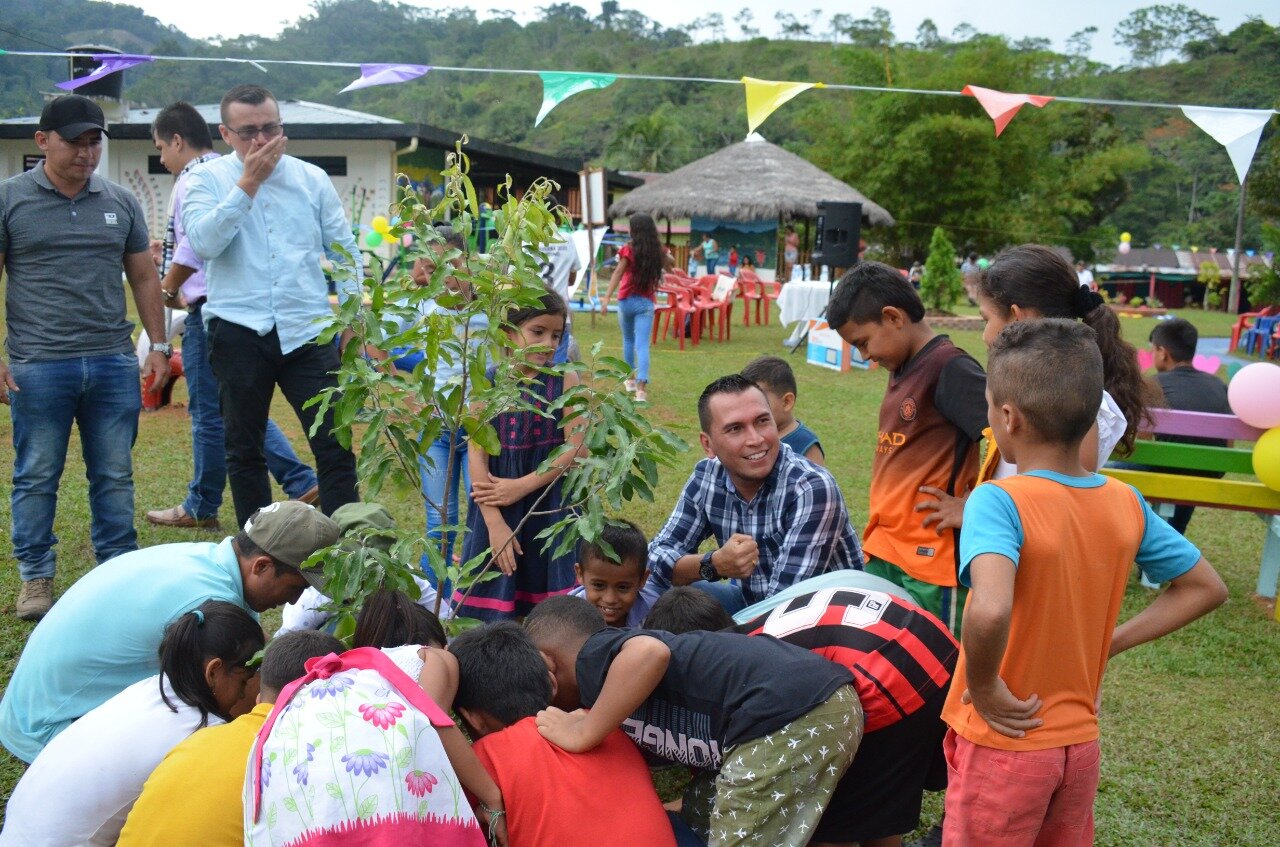
Promoting Emotional Recovery and Community Rehabilitation
From 2008-2022, we worked to repair social fabric and advance the goals of the national peace agreement in communities throughout the country, including indigenous and Afro-Colombian populations. To recover from conflict and displacement, we helped Colombians rebuild connections, trust, and a sense of community through mutual support groups and collaborative art and neighborhood improvement projects. Support group sessions led by our psychologists help participants cope with trauma while promoting community healing and recovery.



